Pod of killer whales spotted off the Scottish coast
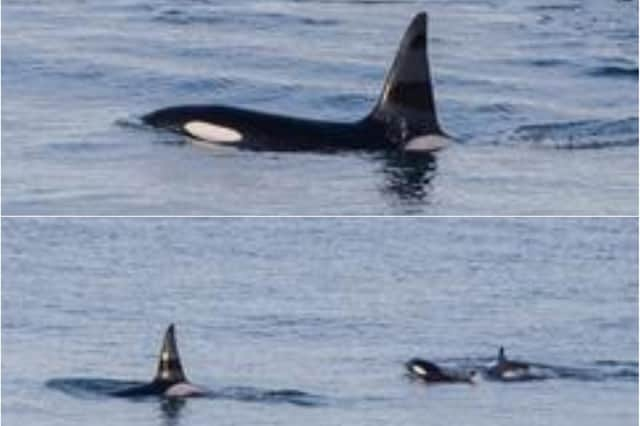

These amazing pics of a pod of killer whales, including a calf, were taken from the photographer's garden overlooking the sea in Scotland.
Orca lover Karen Munro was "jumping up and down" in joy when she saw the majestic mammals swimming towards her house looking onto the bay in Thurso.
Advertisement
Hide AdAdvertisement
Hide AdThe 43-year-old said: "I was thrilled. It was my first sighting of the calf. It still sticks very close to its mum. It was so small and cute."
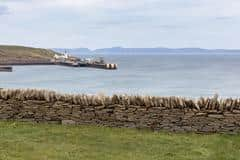

The family are named The 27s pod after its matriarch's number in the Scottish Killer Whale ID Catalogue.
They were spotted off Yell in the Shetland Islands, before surfacing in Thurso Bay on the north coast of Scotland.
Conservationists think the reduced traffic due to the lockdown is encouraging the orcas to explore new areas.
Rob Lott, a policy manager at Whale and Dolphin Conservation, said: "The 27s pod are usually spotted around the Shetland Islands rather than in this area.
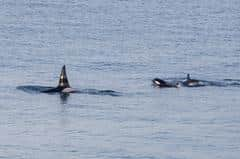

"During the current lock-down there is less vessel traffic on the water so the marine environment must seem so much quieter, and cleaner, for coastal communities of wild orcas which are primarily acoustic creatures.
"They are now able to hunt, navigate and socialise much more effectively in an environment experiencing a reduction in human activity - albeit temporarily."
Karen, who is native to Thurso, received a tip off from a friend who spotted the whales heading towards her on her daily dog walk.
Advertisement
Hide AdAdvertisement
Hide AdShe took pictures and mounted her telescope immediately recognising the pod by their markings, fin shapes and group composition.


They group consists of two large males, three females, two juveniles and the new calf.
Karen, who has a 180 degree view onto the bay, added: "I am quite lucky. I was able to see the pod when they were still a couple of miles away. I watched them for 90 minutes before they eventually swam off.
"I saw hundreds of gulls diving into the water around the whales indicating a possible kill.
Karen, who watched the spectacle during lockdown, said: She added: "The 27s are my favourites because they are quite showy. They are the only pod I have seen breaching completely out of the water.
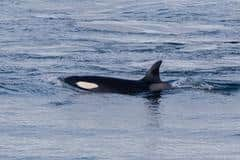

"I was jumping up and down in the garden I was so excited."
Karen, a surveyor at Dounreay Nuclear power plant, would normally share the news, but had to remain tightlipped to avoid compromising the lockdown.
She said: "They are a big draw. Hundreds of people came to see them when they last appeared.
"I had to keep it to myself because crowds would have come out of lockdown to see them."
Advertisement
Hide AdAdvertisement
Hide AdKaren has been passionate about whales since she first saw them in 2005 and updates conservationists in Iceland as the pods migrate to and from Shetland.
She added: "I still get just as excited as I did when I saw them for the first time. Maybe it's the thrill of the chase. They are not easy to see. Luck has to be on your side."
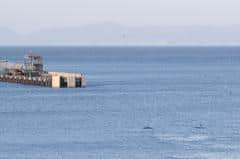

Mr Lott warned that orcas are under threat from pollution, especially from PCBs, a toxic chemical commonly used in lubricants and hydraulic fluids.
He said: "In 2016 a female orca from another of the UK's resident pods - the West Coast community - was found dead off the west coast of Scotland.
"Known to researchers as Lulu, she had one of the highest concentrations of toxic pollutants ever recorded in a marine mammal anywhere."
Comments
Want to join the conversation? Please or to comment on this article.